Presidio of Monterey, Calif. -- When you can't bring students to Korea, you bring Korea to the students via the (Language) Immersion Facility on Ord Military Community.
Defense Language Institute Foreign Language Center instructors use the facility as a nearby resource to represent the language they teach to their students, in this case Korean.
Immersions range from one-to-three days, with students remaining at the center overnight to simulate living in their host country.
Daesung Lee, immersion coordinator for Asian School II said the first overnight immersion began in Mar. of 2003 by Middle East School I.
"It was thoroughly evaluated by the Evaluations and Standards Division," Lee said. "The report was positive and it recommended immersion as an effective way of improving the students' speaking abilities ..."
The report also said that immersion training affects other learning factors such as confidence, motivation and anxiety issues, Lee added.
Lee said that although the program started over five years ago, the inclusion of on-site, overnight immersion training is a fairly new program for their school.
"Asian School II was actually one of the last schools to start doing overnight immersions, Lee said. "We did some one-day events in 2005 and 2006, but did not start the full implementation of the program until 2007." Now the school takes advantage of the learning environment provided by DLI when overseas immersions cannot be readily attained to aid in student learning.
"The Korean Immersion program is tightly scheduled with activities that require critical thinking, broad background knowledge, use of all four skills with special emphasis on speaking, (learning objective) skills, presentation skills, etc.
It is probably one of the most demanding field training immersion programs at DLI," said Lee. Students have a range of tasks to accomplish from finding a missing Soldier to helping a public affairs unit with promoting friendly relations between the U.S. Army and Korean citizens.
"It is a chance to expose students intensively to the most current atmosphere in Korea by putting them in simulated situations with the specific tasks that they might have to deal with in the future as military linguists," Lee said.
Since the students are not allowed to speak English during the entirety of their immersion, they use the opportunity to fine-tune their language listening and speaking ability.
"We have been trying to utilize the immersion as the chance to expose our students to the challenging situations, which will make them more confident in Korean language and culture," Lee said.
The situation presented was for the students to find the best way to market the U.S. Army in Korea.
Students were given time to listen and ask questions about various advertising pitches in media such as television, radio and marketing with metropolitan transportation systems.
Senior Airman Desha Noelle, who sat in during a pitch that broadcast Army ads and command messages on buses and trains, said the training, though practical, had its share of pros and cons.
"I thought (the instructor) had too many questions, (but) I (felt) it would be rude or bad if I interrupt," she said through Sgt. 1st Class (Ret.) Thomas Clanton, a military language instructor, acting as her interpreter.
During immersion, the students are given practical interactive instruction on Korea's culture and traditions.
"I've learned a lot about the relationship between 8th (U.S.) Army and the Republic of Korea Army," Noelle said. "I (also) learned about Korean bowing ... and the foods," she said.
Clanton, a retired Army linguist who came back as a contractor, said that the inclusion of immersion training is something that he wishes he had when he came through DLI over 20 years ago.
"(The immersion) increases the students' productive skills in writing and speaking," Clanton said.
"When I came through the focus was on listening and reading. (The) training demands students use different language skills to deal with given tasks," Lee said.
He also noted how the instructors try to make the learning enjoyable for the students so they can actively engage in their language and culture such as cooking Korean food to practicing Tae Kwon Do, a form of Korean martial arts.
But with any educational program, there is always room for improvement, said Clanton. "At the end of each immersion we have an after actions review with the teachers and students to help make future training more effective," he said.
Lee believes that both the students and teachers work hard to create a more realistic atmosphere with very limited resources.
"We hope that the facilities for (immersions) can be improved so that the teachers can create more realistic settings ... in order to bring higher intensity and quality to the content," Lee said.
"It is not an easy task to be successful for both teachers and students when we constantly challenge our students in total Korean immersion with almost non-existing, target-country-like realities in a small building," he said.
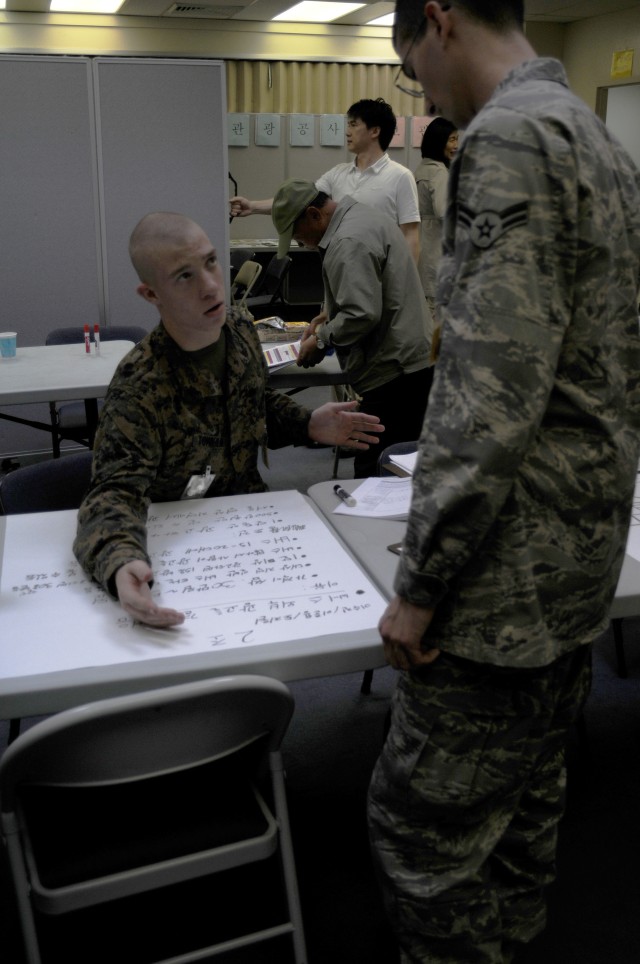
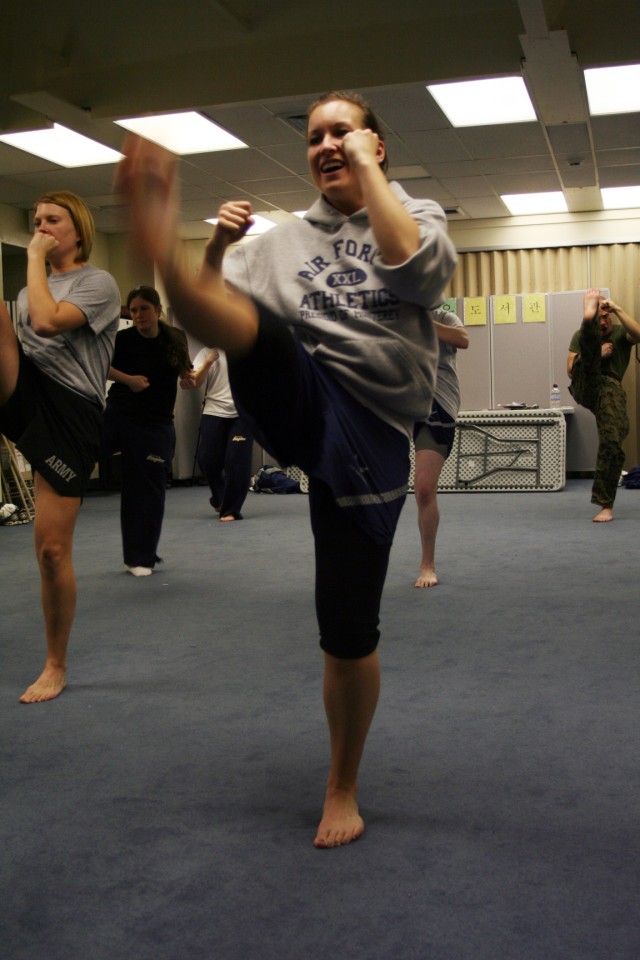
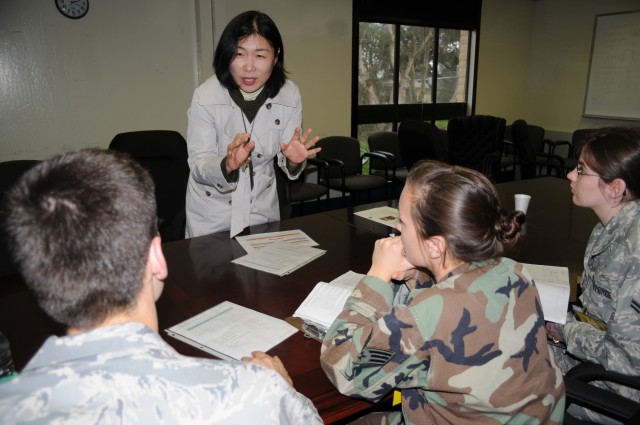
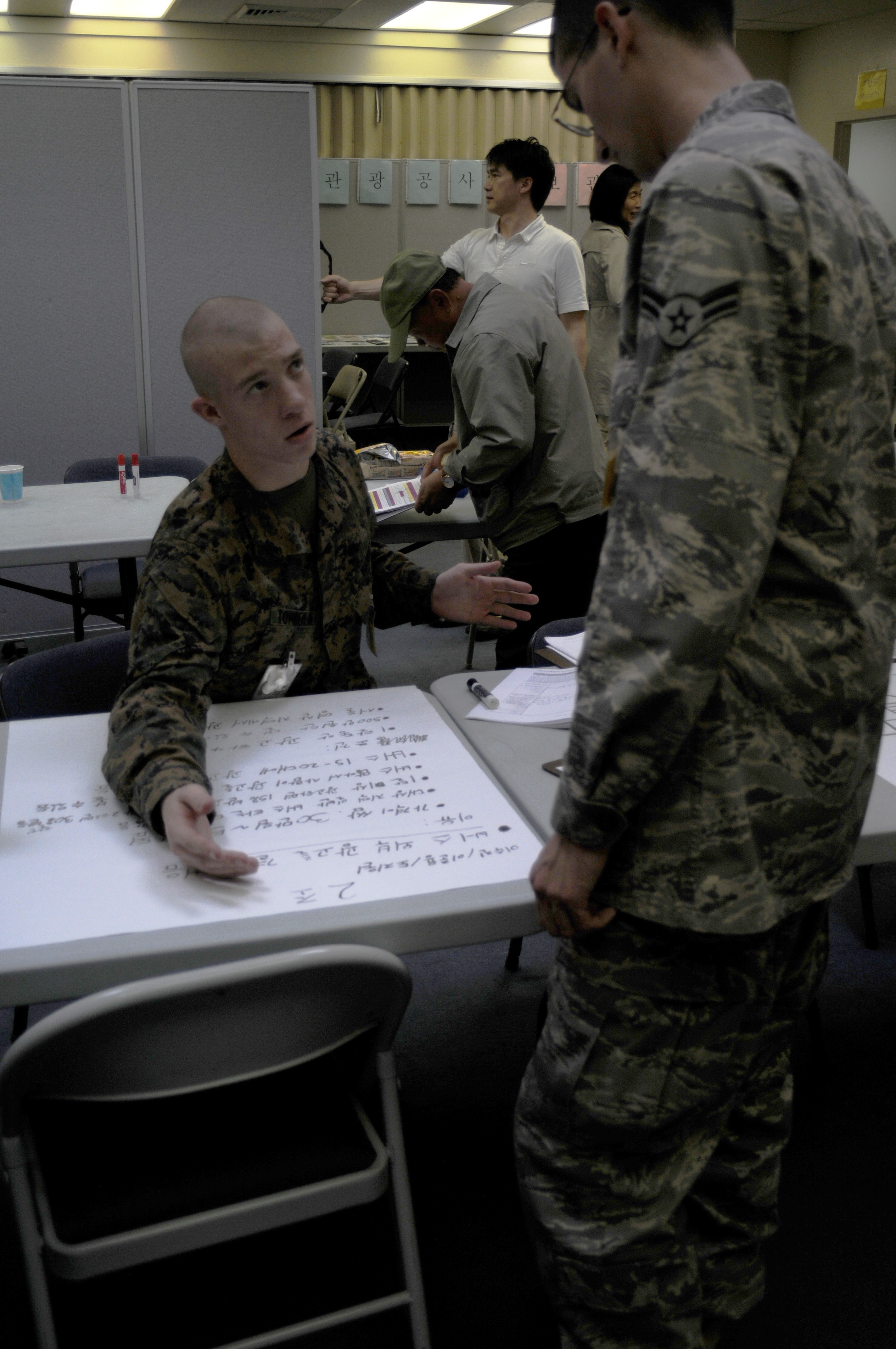
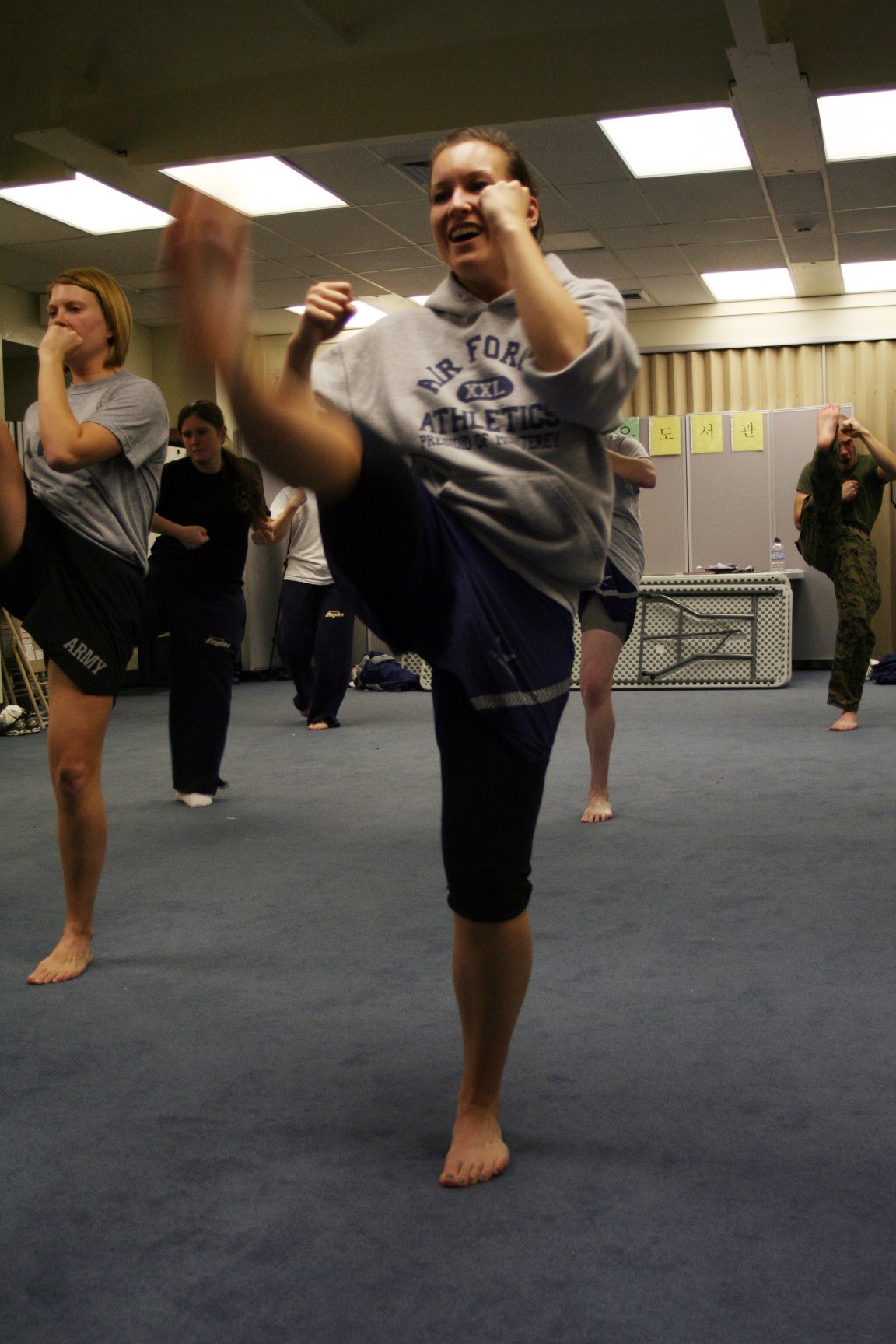
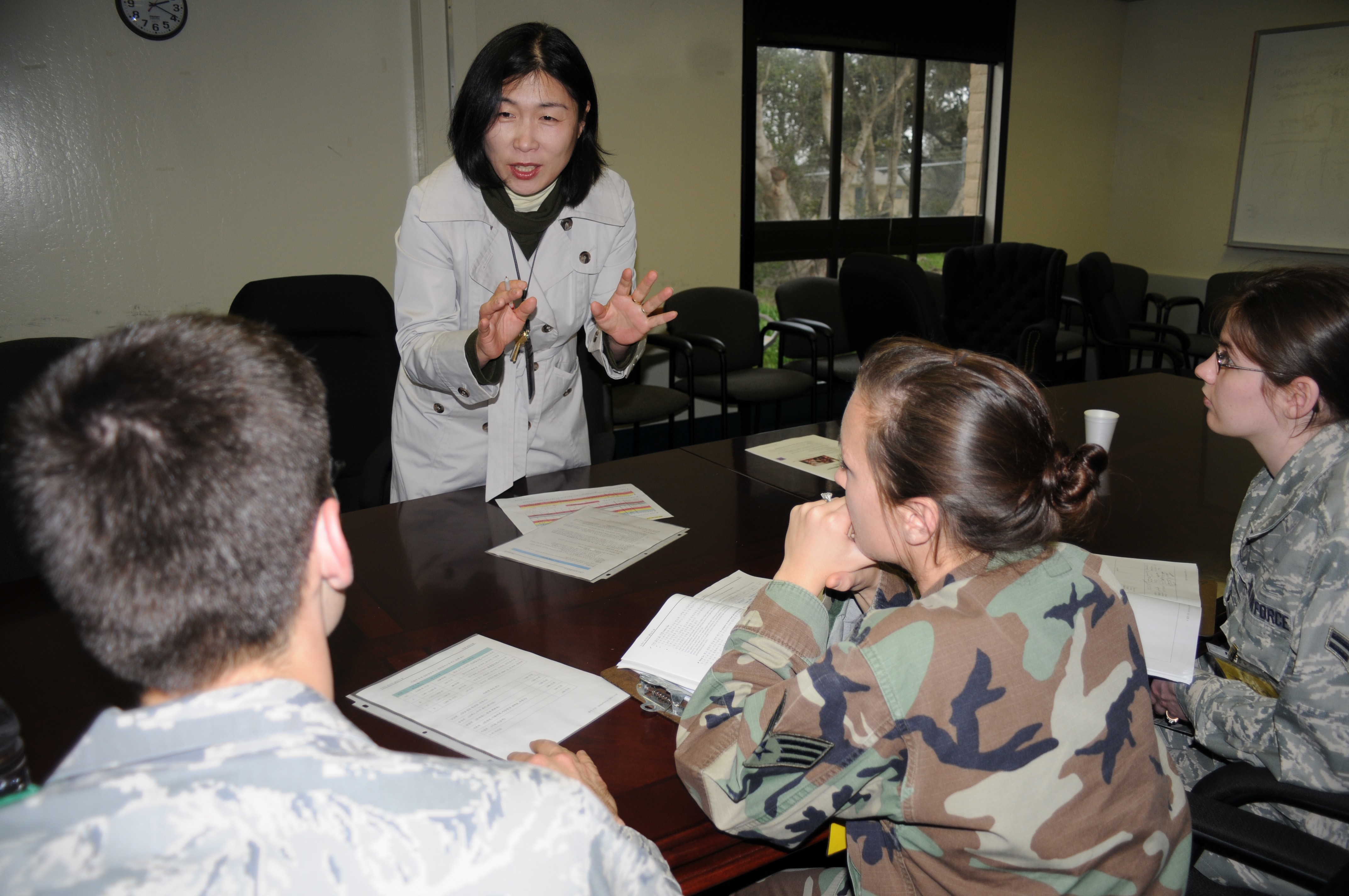
Social Sharing